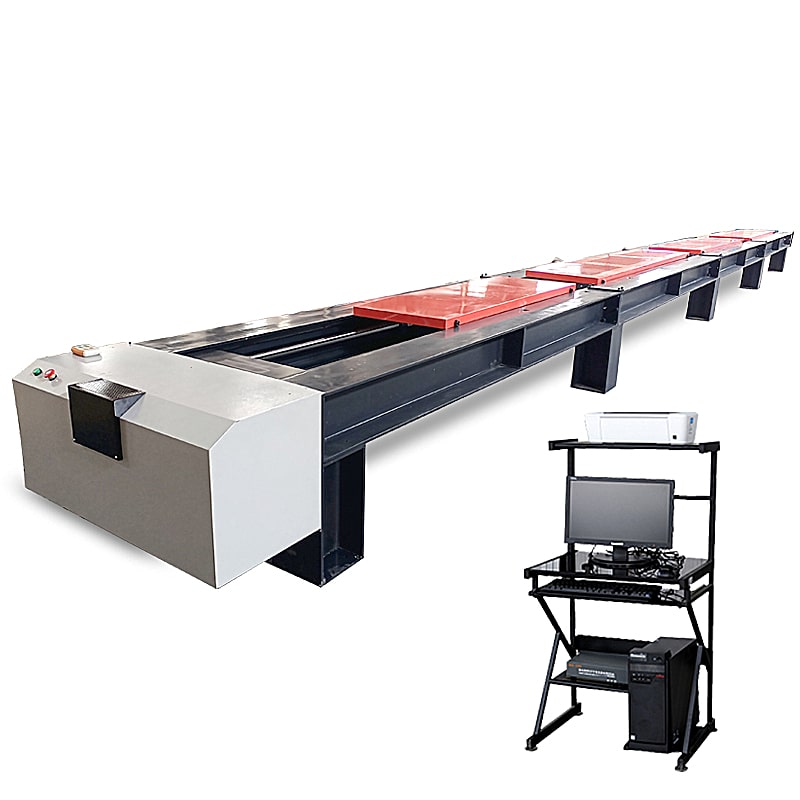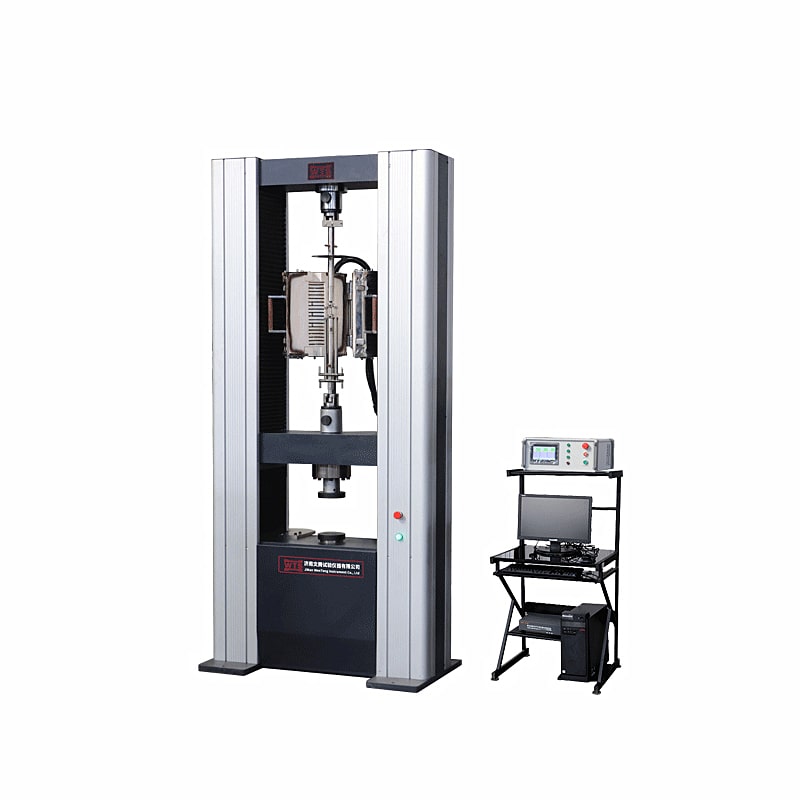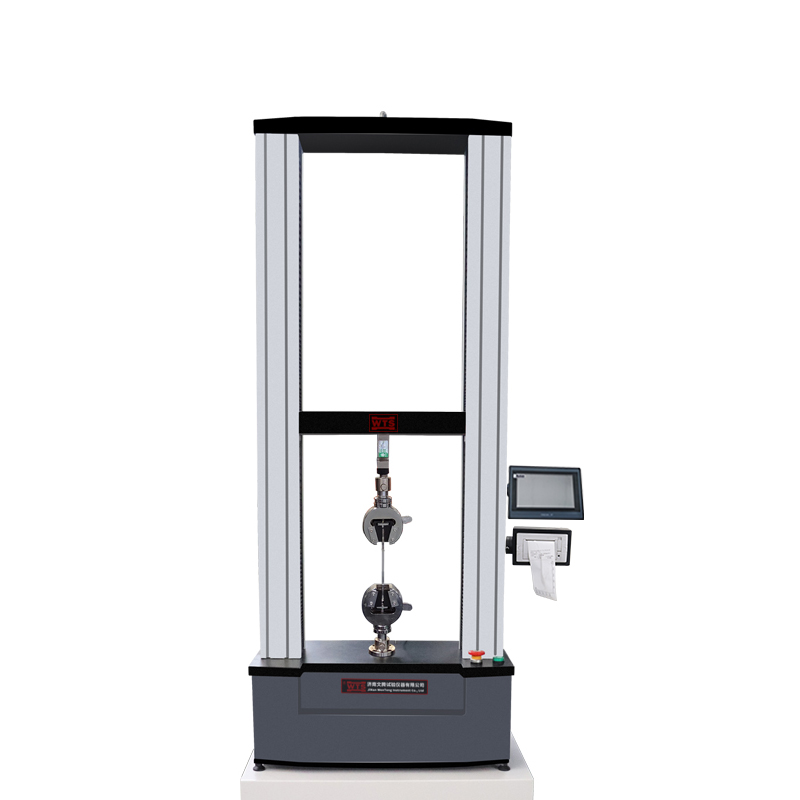In today’s fast-paced industrial world, the need for reliable material testing solutions is greater than ever. From aerospace to automotive, from construction to energy, engineers and manufacturers must ensure that every material used in production meets strict standards of safety, performance, and durability. One of the most critical tests in this process is tensile testing, which measures a material’s ability to withstand pulling forces before failure.
Among the many types of tensile testing systems available, hydraulic tensile testing machines stand out for their precision, high load capacity, and suitability for testing a wide range of materials. These machines are indispensable in laboratories and quality assurance departments, enabling industries to maintain consistency and compliance with international standards.
This article provides an in-depth look at hydraulic tensile testing machines, their working principle, advantages, applications, and the trends shaping their future.
What is a Hydraulic Tensile Testing Machine?
A hydraulic tensile testing machine is a type of universal testing machine (UTM) that applies force using hydraulic pressure. It is designed to test the tensile strength, elongation, yield point, and other mechanical properties of materials such as metals, plastics, composites, textiles, and rubber.
Unlike electromechanical testing machines, which rely on motors and screws, hydraulic systems use pressurized fluid to generate large forces. This allows them to handle extremely high-capacity tests, often exceeding several thousand kilonewtons (kN).
Working Principle
The core principle behind hydraulic tensile testing machines is simple but powerful:
Hydraulic Pump System – A hydraulic pump pressurizes the fluid, which is directed into hydraulic cylinders.
Load Application – The piston in the hydraulic cylinder pushes or pulls on the specimen grips, applying tensile force to the test specimen.
Load Measurement – A load cell or pressure transducer measures the exact force applied.
Displacement and Elongation Measurement – Extensometers or digital encoders track the deformation of the specimen.
Data Recording – The control system captures stress-strain data and generates curves for analysis.
This combination of hydraulic force generation and precise sensors ensures accurate and repeatable results, even at very high loads.

Key Features of Hydraulic Tensile Testing Machines
Modern hydraulic tensile testing machines come with advanced designs and features:
High Load Capacity: Capable of testing heavy-duty metals, alloys, and structural materials.
Dual Test Space: Separate test areas for tensile and compression tests.
Computer Control System: Automated test execution with real-time monitoring and data acquisition.
Safety Mechanisms: Hydraulic overload protection and emergency stop systems.
Multi-Purpose Functionality: Ability to perform tensile, compression, bending, shear, and peel tests.
Accuracy and Repeatability: Conforming to standards like ASTM, ISO, and DIN.
Advantages of Hydraulic Tensile Testing Machines
High Strength Testing
Hydraulic systems generate large forces, making them ideal for testing thick steel plates, rebar, and heavy-duty industrial materials.Durability and Reliability
Hydraulic machines are robust and designed for long-term industrial use. They can withstand harsh environments and continuous testing.Versatility
With the right fixtures, they can test metals, polymers, wood, concrete, and more.Cost-Effective for Heavy Loads
For extremely high capacities, hydraulic systems are more efficient than electromechanical alternatives.Consistent Results
Equipped with precise sensors and software, these machines deliver highly accurate and repeatable results.
Applications Across Industries
Hydraulic tensile testing machines are used in a wide range of industries:
1. Construction and Civil Engineering
Testing steel reinforcement bars (rebar), concrete, and structural materials.
Ensuring compliance with safety regulations for bridges, buildings, and infrastructure.
2. Automotive Industry
Evaluating sheet metals, fasteners, and welded joints.
Enhancing crash safety by verifying material ductility and tensile strength.
3. Aerospace Industry
Testing advanced alloys, composites, and fasteners used in aircraft and spacecraft.
Meeting strict fatigue and tensile strength requirements for aviation safety.
4. Energy Sector
Assessing pipelines, drilling equipment, and turbine materials.
Ensuring reliability in oil, gas, and renewable energy projects.
5. Metallurgy and Manufacturing
Verifying the quality of raw materials and finished products.
Supporting research and development in new alloys and materials.
6. Plastics and Polymers
Testing tensile behavior of thermoplastics, films, and molded parts.
Supporting packaging, consumer goods, and medical device industries.
7. Textiles and Rubber
Analyzing fabric strength, stretchability, and tear resistance.
Ensuring performance of elastomers, seals, and tires.
Hydraulic vs. Electromechanical Tensile Testing Machines
| Feature | Hydraulic Machines | Electromechanical Machines |
|---|---|---|
| Load Capacity | Very high (up to thousands of kN) | Low to medium (typically <600 kN) |
| Accuracy | High, but slightly lower than electromechanical | Very high at low loads |
| Speed Control | Moderate, less flexible | Precise and wide range |
| Durability | Extremely robust | More sensitive to wear |
| Best for | Heavy-duty metals, construction materials | Plastics, composites, textiles, low-force tests |
Standards for Hydraulic Tensile Testing
Hydraulic tensile testing machines are typically designed to comply with international testing standards, including:
ASTM E8/E8M – Standard Test Methods for Tension Testing of Metallic Materials
ISO 6892 – Metallic Materials Tensile Testing
ASTM D638 – Plastics Tensile Properties
ISO 527 – Plastics Tensile Testing
EN 10002 – Metallic Materials Tensile Test Standards
Compliance with these ensures data consistency, reliability, and acceptance across industries and countries.
Choosing the Right Hydraulic Tensile Testing Machine
When selecting a machine, consider the following factors:
Load Capacity – Match the machine to your maximum expected force.
Specimen Types – Choose fixtures for metals, plastics, composites, or textiles.
Control System – Modern software with automatic data acquisition and analysis is essential.
Test Standards – Ensure compatibility with relevant ASTM, ISO, or DIN standards.
Safety Features – Overload protection, hydraulic safety valves, and user-friendly controls.
Budget and Maintenance – Consider both purchase price and long-term servicing costs.

Future Trends in Hydraulic Tensile Testing Machines
The testing industry is evolving rapidly, and hydraulic tensile testing machines are also advancing. Some of the key trends include:
Digital Integration – Cloud connectivity, IoT-enabled monitoring, and remote test data analysis.
Automation – Robotic specimen handling to improve throughput and reduce operator error.
Hybrid Systems – Combining hydraulic power with electromechanical precision.
Eco-Friendly Hydraulics – Use of energy-efficient pumps and environmentally safe hydraulic fluids.
AI-Powered Analysis – Machine learning for predictive testing and advanced failure analysis.
Maintenance and Calibration
For long-term performance, hydraulic tensile testing machines require proper care:
Regular Calibration – Ensures accuracy and compliance with standards.
Hydraulic Fluid Checks – Maintain clean and leak-free systems.
Fixture Inspection – Prevent wear and misalignment in grips and clamps.
Software Updates – Keep the control system up-to-date for optimal functionality.
Conclusion
Hydraulic tensile testing machines remain the backbone of material testing in heavy industries. Their ability to deliver accurate, repeatable results at very high loads makes them irreplaceable in fields like construction, automotive, aerospace, and energy.
As industries push for stronger, lighter, and more reliable materials, the role of hydraulic tensile testing machines will only grow. With advancements in digital control, automation, and sustainability, these machines are set to remain a cornerstone of quality assurance and material research for decades to come.
For any business that deals with materials requiring high-capacity testing, investing in a hydraulic tensile testing machine is not just a choice—it is a necessity for safety, compliance, and innovation.









